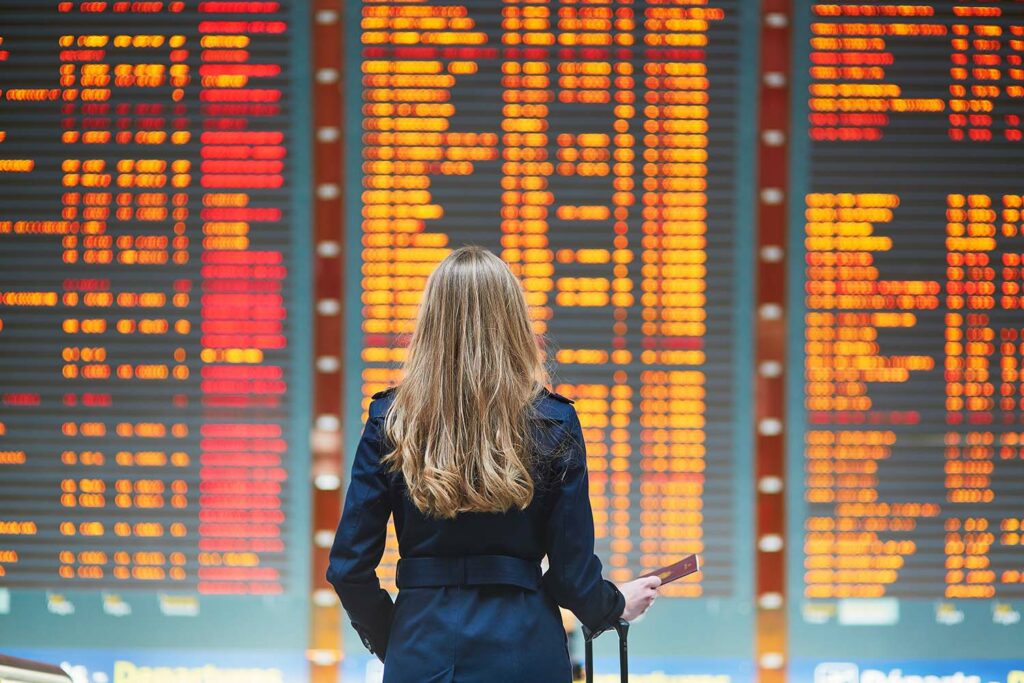Since the start of the Covid-19 pandemic, open and easy travel has been ground to a halt. As the ongoing global vaccination programme gives us hope and confidence that travel will slowly start to open up, it is unlikely that we will see any normality in how we used to travel pre-pandemic much before the start of 2022. Even post-pandemic, it is likely that the ‘normal’ we all know may never return. Organisations and their travellers will need to adapt and remain agile to these changes or may rethink their travel policy.
In the short to medium-term future, passengers are expected to continue to wear masks and social distance whilst travelling. Covid testing and quarantining on arrival will also likely remain the norm until the pandemic is under control or the vaccination programme is proven to work across the globe. Travellers must ensure they meet the Covid test requirements of both their destination and country they are returning to. Businesses will need to weigh up the cost and time of testing and quarantining and whether the employee’s travel is worthwhile.
Will companies be rethinking their travel strategy?
Video and conference calling apps have taken centre stage for business meetings and communication during the pandemic. Whilst these platforms have replicated the experience of a face-to-face meeting, there is nothing quite like seeing a client, supplier or colleague in person, especially when building a new business relationship or managing a sensitive deal. A study by Oxford Economics found higher rates of sales conversions from face-to-face meeting where on average 30% of new sales attributed to corporate travel.
Understanding your audience and reading the room’s body language is seen as paramount by many businesspeople. A 2008 study from the University of Iowa found that a handshake alone releases oxytocin in the brain resulting in trust being built more easily between strangers. This in itself speaks volumes for why in-person business travel is so important.
Many businesses have demonstrated the need and want to return to ‘normal’ business travel. A Financial Services client of CT Business Travel commented:
“Our team members have been working remotely and they need to feel part of one team. We will be travelling domestically at first when permitted and running many kick-off meetings to bring our teams back together.”
CT Business Travel Client
Furthermore, an established retail client has reported they are looking to grow their retail presence and supply chain in the EMEA market. As soon as possible, the client will be investing in business travel throughout 2021 and 2022.
Whilst the need for business travel will never diminish and many are showing a real want and need to get back on the road, it is likely that some organisations may need to rethink their travel strategy post-pandemic. They may need to re-evaluate the cost and return on investment of the trip, think about their duty of care to employees and also how their travel policy affects the environment.
Travel authorisation is likely to be required more often and the supply chain will be scrutinised, ensuring it meets health and safety and welfare regulations. Decision makers may also require business cases forecasting the expected return on investment of the trip. According to a study by Oxford Economics, each $1 invested in business travel creates $12.50 in revenue. However, will this high return on investment remain post-Covid? More organisations may look to using a Travel Management Company who can help reduce travel costs and provide in-depth reporting and insight into the company’s travel.
Duty of care and traveller safety will also be paramount within business travel. Not only will organisations be looking for expertise and advice regarding the everchanging travel rules and regulations, but they will also want to cement a solid contingency plan to locate and repatriate employees if needs be. The increase of terror attacks, political uprisings and health pandemics has made the latter action even more critical.
An opportunity to rethink the relationship between sustainability and travel post-Covid
One positive aspect to come from the pandemic is the time we have had to reflect and think. We have been given the opportunity to appreciate what we have and subsequently how we make positive changes in the future to our lifestyle, both personally and in business. Individuals and organisations have been able to ask questions they may have not thought of before. Do we need this? What will the outcome be? What impact does this have on others and the environment?
Whilst sustainability continues to be a hot topic globally, the COVID-19 pandemic has highlighted the impact that travel has on the environment. Widespread lockdowns, travel bans and heavily reduced air traffic have all contributed towards the decline in carbon emissions in 2020. Post-pandemic, it is likely businesses will be reflecting on their travel policy and looking at ways to reduce their environmental impact and carbon footprint. There is also increasing pressure and interest from external groups for organisations to achieve a healthy balance between their travel needs and the environment.
According to Statista, the UK invested in $50 billion in business travel in 2019. In addition, a study by Oxford Economic estimates that on average 40% of client retention and 30% of new sales are attributed to business travel. These figures alone conclude there will always be a strong need for corporate travel. Post-Covid however, an organisation’s outlook on business travel may change. There is no doubt businesses will seek more information, insight and support when implementing their travel policy. Cost, employee wellbeing and sustainability will all play major factors in how a business will rethink their travel strategy. As a result, travel management will become more important than ever.
CT Business Travel has been providing travel management services and greener travel advice for ESCP London Campus since December 2014.
